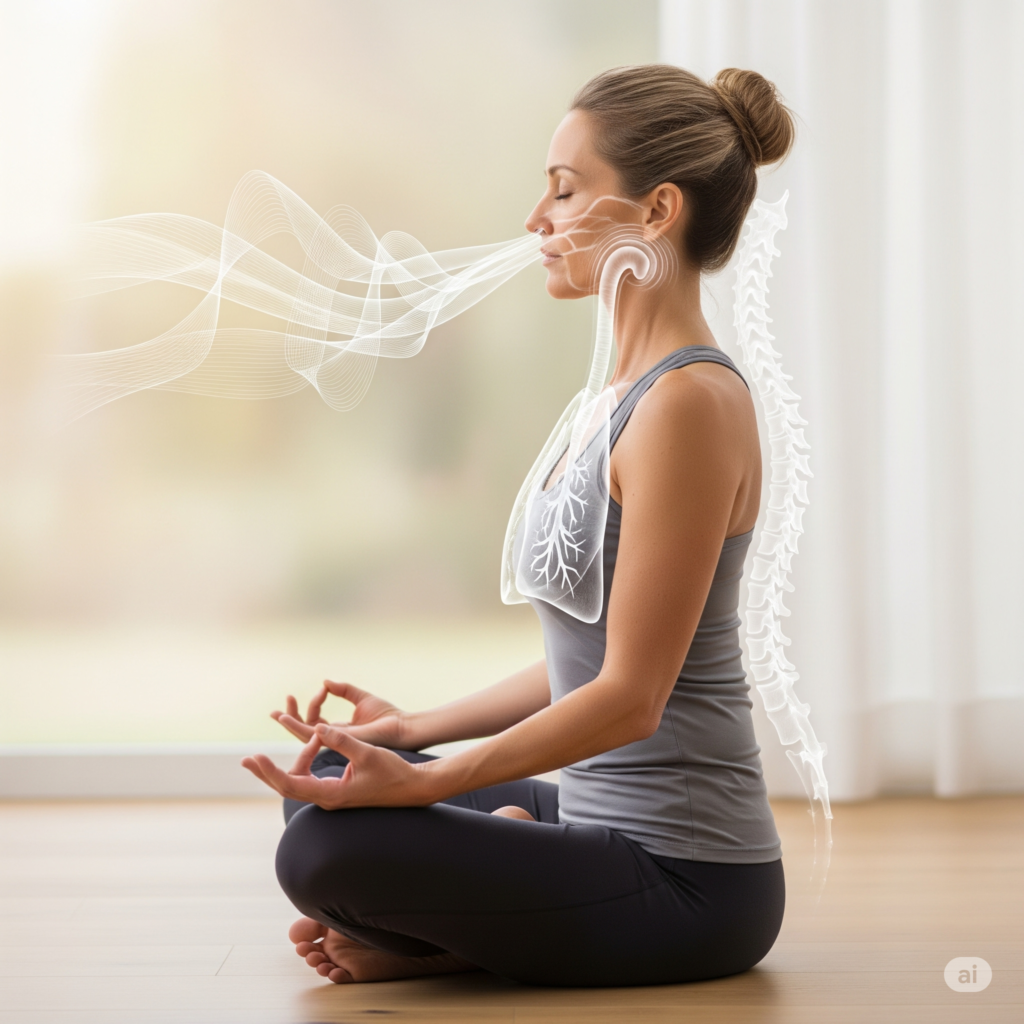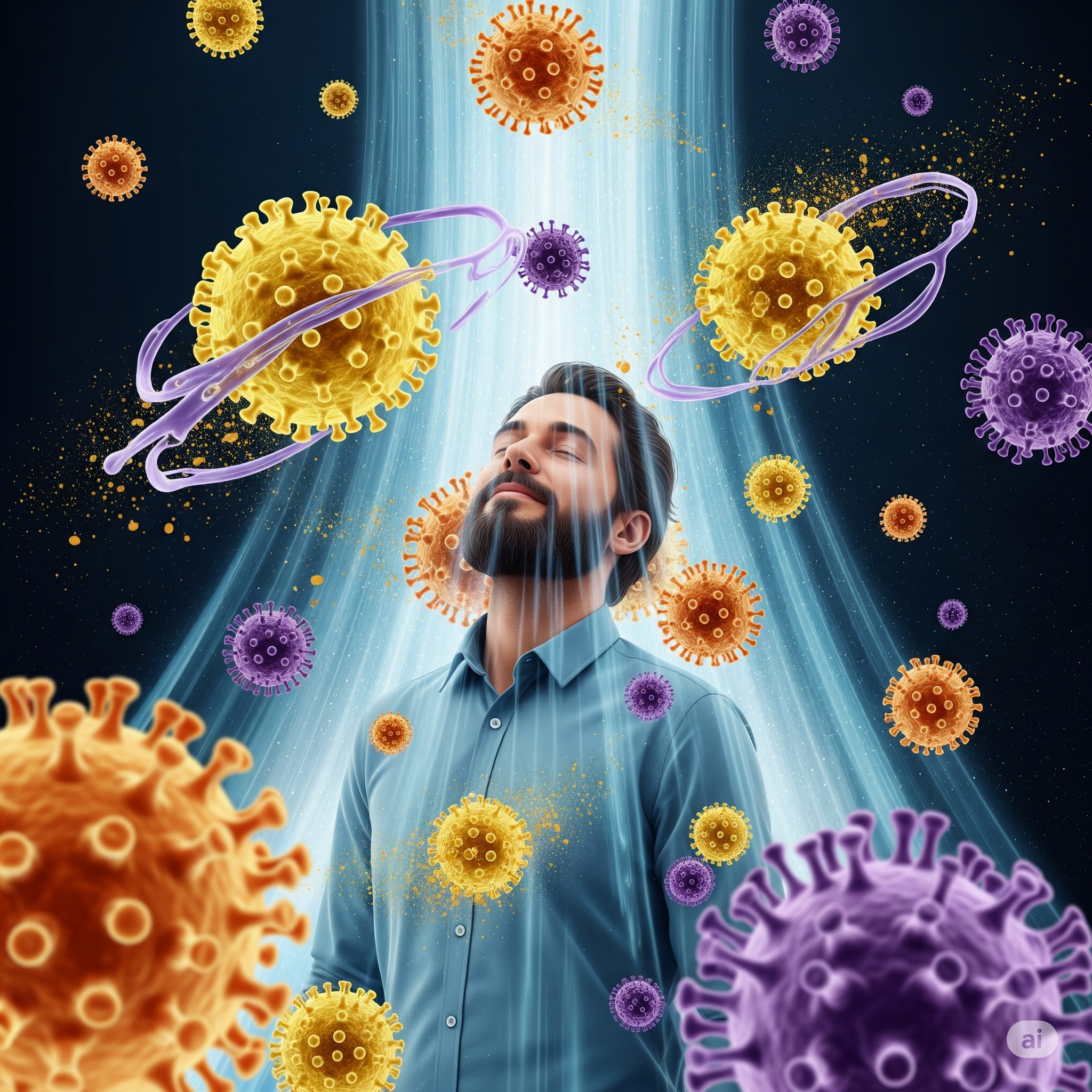ğ¦ Quick Summary:
- Aerobiology is the study of airborne biological particles and how they affect human health.
- COVID-19 renewed focus on airborne pathogens and ventilation.
- Research shows many of us are breathing inefficiently or incorrectly.
- Breathing patterns impact mental clarity, immunity, sleep, and stress.
- Understanding proper breathing is essential for post-pandemic health resilience.
ğ§ Rediscovering the Breath
For something we do over 20,000 times a day, breathing remains one of the least understood bodily functionsâat least in the modern world. The global COVID-19 pandemic threw aerobiology into the spotlight, forcing people to reckon with airborne transmission, poor ventilation, and how the very air we inhale affects our health.
At the same time, researchers and journalists have uncovered that modern lifestyles may be distorting our natural breathing patterns, leading to a silent crisis with wide-ranging effects on health, focus, sleep, and even posture.
ğ«ï¸ What Is Aerobiology?
Aerobiology is the scientific study of airborne biological particlesâsuch as bacteria, viruses, fungal spores, pollen, and even human-produced aerosols. It examines:
- How biological particles move through the air
- How they interact with the environment
- How they impact public health, indoor air quality, and epidemiology
Aerobiology plays a central role in:
- Tracking airborne diseases like COVID-19
- Designing hospital ventilation systems
- Understanding allergy patterns and pollution effects
ğ¦ COVID-19 and the Air We Breathe
COVID-19 was a wake-up call in terms of how diseases spread in air. While early pandemic responses focused on surfaces, scientific consensus soon shifted to airborne transmission.
This had three major implications:
- Ventilation became as crucial as vaccination.
- Mask quality and fit mattered more than just wearing one.
- People began questioning: How well are we actually breathing?
ğ®âğ¨ Are We Breathing Wrong?
Surprisingly, yes.
Multiple studies and health expertsâincluding authors like James Nestor, who traveled the world to study ancient breathing techniquesâhave shown that modern humans often breathe:
- Through the mouth instead of the nose
- Too shallowly or too rapidly
- While slouching, reducing lung efficiency
- In indoor environments with poor air circulation
ğ§ Why Breathing Right Matters
Proper breathing impacts nearly every aspect of our health:
| Benefit | How Breathing Helps |
|---|---|
| Cognition | Better oxygen flow to the brain improves focus and memory. |
| Immunity | Deep breathing reduces inflammation and boosts lymphatic circulation. |
| Stress Reduction | Activates the parasympathetic nervous system (rest and digest). |
| Sleep | Nasal breathing supports more restful and deeper sleep. |
| Posture | Correct breathing encourages proper spinal alignment. |
𧪠What Science Says About Optimal Breathing

Modern research supports practices that have been promoted in yoga, meditation, and ancient medical systems for centuries:
- Nasal breathing filters, humidifies, and warms air
- Diaphragmatic breathing strengthens lung capacity
- Slow and rhythmic breathing lowers blood pressure and anxiety
- Breath-hold exercises (like the Buteyko method) improve COâ tolerance and oxygen efficiency
ğ A Journalistâs Quest for the Perfect Breath
In the book âBreathâ by James Nestor, the author explores:
- Why ancient civilizations were more aware of breathing science
- How modern diets and dental structures have changed airway anatomy
- The role of breath in extreme endurance, meditation, and healing
His conclusion? We’ve lost the art of breathing, and reclaiming it could transform our health.
ğ¥ What Can We Do Now?
â Actionable Steps for Better Breathing:
- Practice 5 minutes of nasal breathing exercises daily.
- Maintain good posture, especially while working.
- Improve indoor air quality through ventilation and filtration.
- Try techniques like box breathing (inhale-hold-exhale-hold for 4 seconds each).
- Read up on or consult a professional about breathing therapy.
ğ Conclusion: BreathingâThe Forgotten Pillar of Health
As the world becomes more aware of how viruses, air quality, and stress affect us, one truth is becoming clear: how we breathe is just as important as what we eat or how much we sleep. Aerobiology is helping us understand the external threats in the air, but the real opportunity lies withinâin each breath we take.









+ There are no comments
Add yours